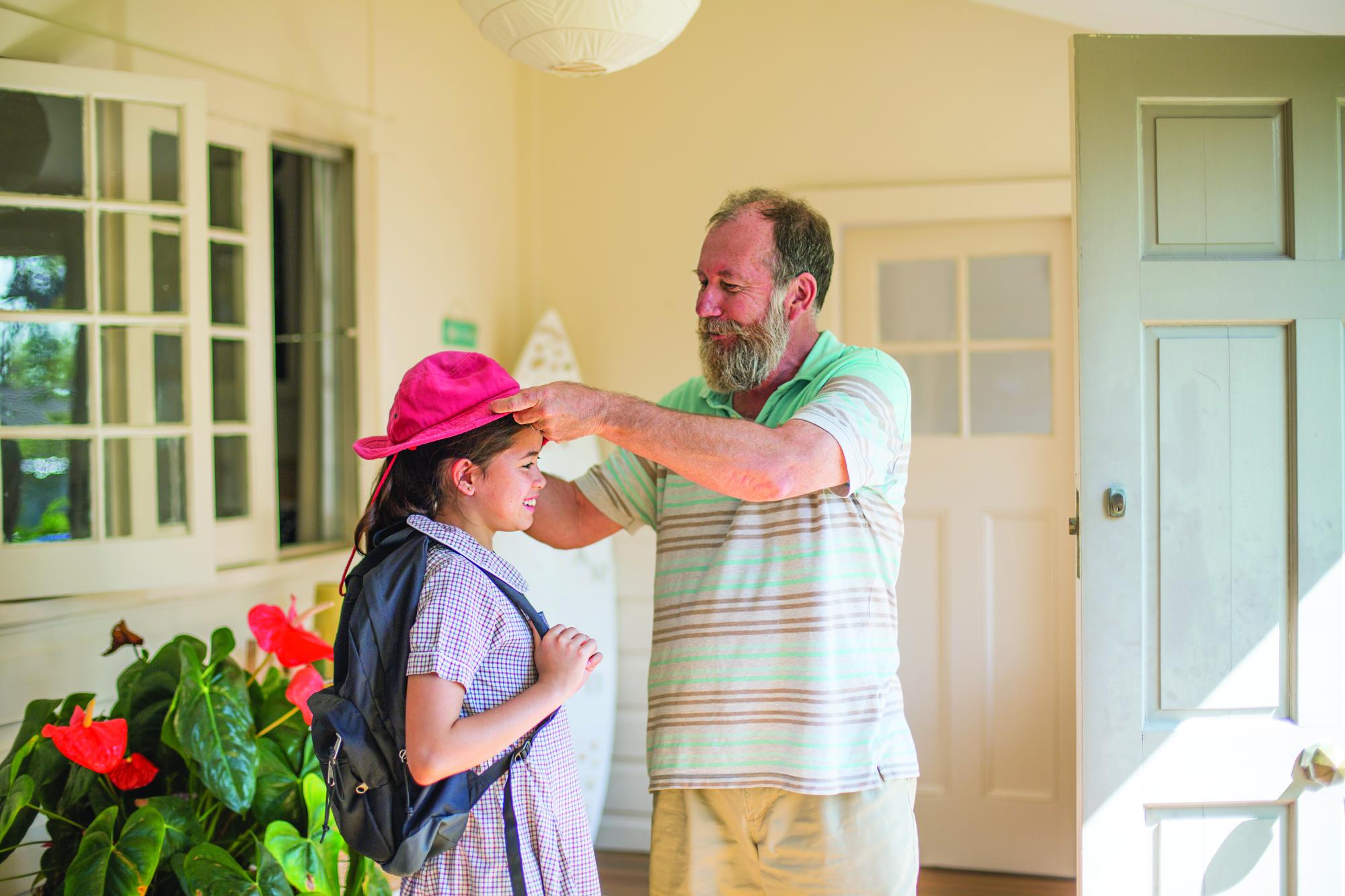5 to 9 years

What to expect
By the age of 6, most children will show an interest in how babies are made and may ask how the egg and sperm get together, which will involve a simple explanation of sexual intercourse.
From about age 8, if they are curious they are likely to look it up online, so it pays to get in first.
Talk about how you want them to come to you with any questions, rather than going online.
Children are likely to hear stories about sex in the playground, and pick up that sex is a ‘rude’ topic.
They may still ‘play doctors’ or ‘you show me yours and I’ll show you mine’ but are usually more likely to stop when adults pass by.
They need to know that some parts of the body are private and remind them about rules about touching.
Around age 8, children begin forming new friendship groups based on common interests.
Children who have different interests and ways of expressing themselves may have more trouble fitting in and will need support with this.
Some of the messages children receive about how girls should dress or how boys should ‘man up’ can affect their wellbeing.
Children might start to be critical of boys who like ‘girl’ things and girls who like ‘boy’ things. Many children (and adults) do not fit current feminine and masculine stereotypes and it is unfair to have rules about who can like what. (See Stereotypes, roles and expectations.)
What you can do to help
- Use books to start the conversation about how babies are made. See below for book suggestions.
- Some children at this age may feel modest. Respect their privacy in the bathroom.
- Make sure all children know that they can say “No” to touching that they do not want (including from family members).
- Talk to your child about the difference between ‘good’ and ‘bad’ secrets or surprises and that no-one should ask them to keep a bad secret.
- Ask your child to make a list of people (both inside and outside of the family) they trust and feel safe to talk to if they need help.
- Some girls will begin breast development and periods by age 8 or 9. Having conversations with your kids about ‘growing up’ and changing bodies helps to prepare early starters.
- Do your relatives assume your boy loves sport or your girl loves frilly dresses? Is your son allowed to play with dolls?
- Restricting what our kids can and can’t do based on their gender only limits what they can achieve (and we want to maximise their potential).
- Parents have the most influence – start challenging gender stereotypes now (if you haven’t already). (See Stereotypes, roles and expectations.)
- If your child feels they do not fit in because of gender stereotypes, remind them that the way of being a boy or girl in your town or their school is only one way to be a boy or girl.
- Focus on the qualities of being a good person, and find examples of different types of people.
My daughter knew from the age of 2 that to make a baby you need a sperm and an egg. When, at 6, she asked how the sperm got to the egg, I had a little panic attack in my head. I hid my panic as best I could and said, “The sperm comes out of the penis and goes inside the vagina.” My daughter’s response was, “OK. Can I have some toast please?"
Parent of girl 7
Read next:
Related content:
You might also be interested in:
Protective Behaviours resources, Growing and developing healthy relationships
Sexual behaviours in children and young people, TRUE An article for parents to respond to age related sexual behaviours
Who has what? All about girls' bodies and boys' bodies, by Robie Harris (USA) A simple story following Nellie and Gus on a family outing to the beach. Humorous illustrations, conversations between the siblings and a clear text on girls' and boys' bodies.
It's not the stork: a book about girls, boys, babies, bodies, families and friends, by Robie Harris (USA) Straightforward, humorous facts presented step-by-step
What makes a baby, by Cory Silverberg (USA) A diversity friendly look at the different ways that your child may have ended up in your family – two dads, two mums, IVF, surrogacy, adoption, etc.
Let's talk about body, boundaries, consent and respect, by Jayneen Sanders Body ownership, respect, feelings, choices and recognising bullying behaviours.
A secret safe to tell, by Naomi Hunter A story about a child who has an adult friend who touches make her feel frightened and confused. A nurturing resource to start conversations about sexual abuse and telling a trusted adult.
